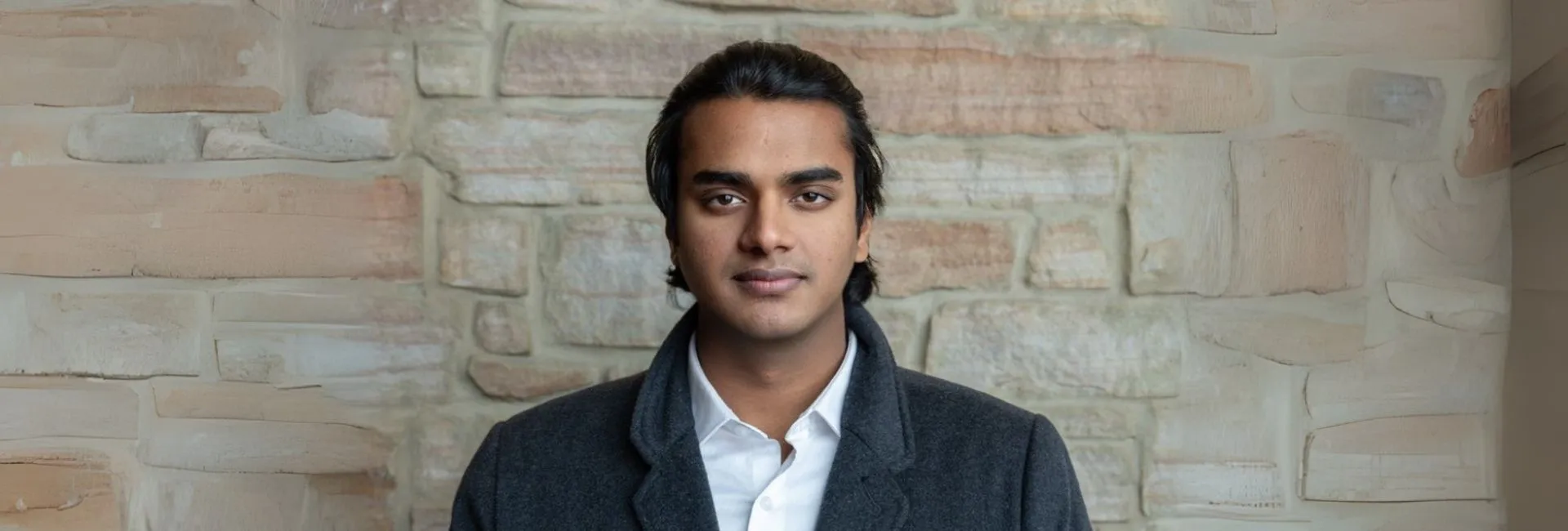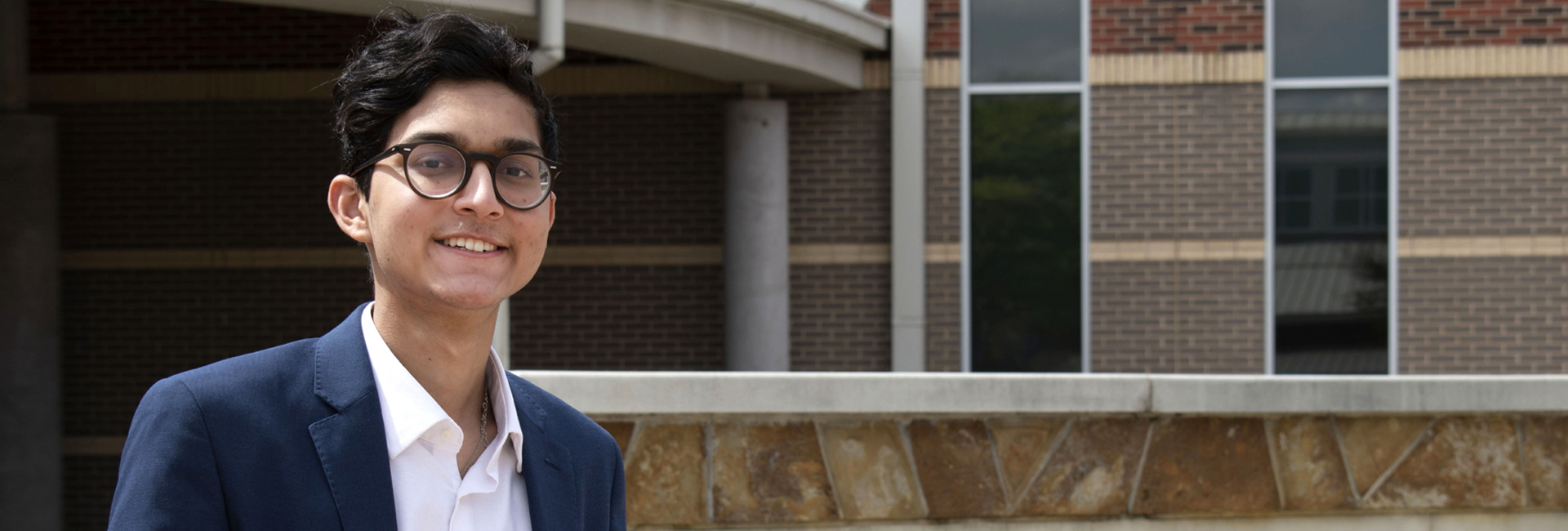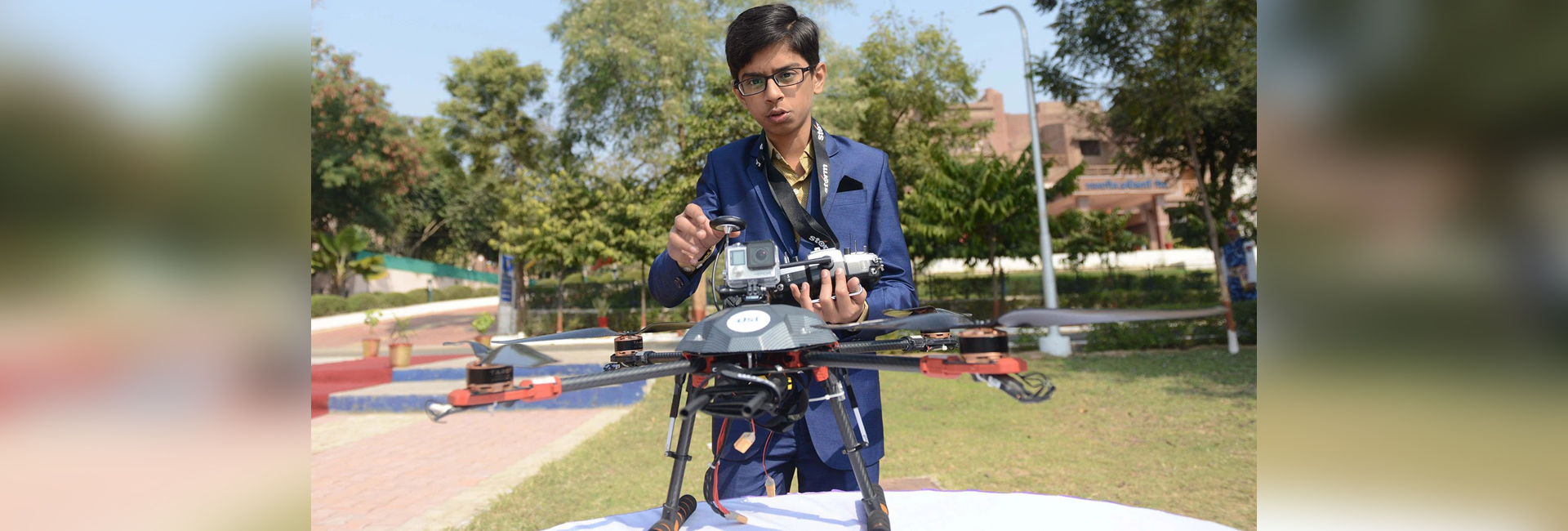(July 18, 2025) Back in 2021, when Aman Sanghi along with a few like-minded students from the University of Wisconsin — Madison set out on an ambitious goal to design and build a solar-powered race car from the ground up — the only tool they had was the determination to succeed.
With no prior experience, they started from the scratch. Two years and a mountain of challenges later, the team led by Aman did the unthinkable — they rolled out their first minimum viable product, a solar car, which even passed the technical scrutiny for the first time in team history, completing 92 laps — 230 miles at the Electrek Formula Sun Grand Prix in Topeka, Kansas in 2023.
“That effort earned us the Rookie of the Year award, a recognition given to the only first-year team with a fully original car,” smiles Aman, in a chat with Global Indian.
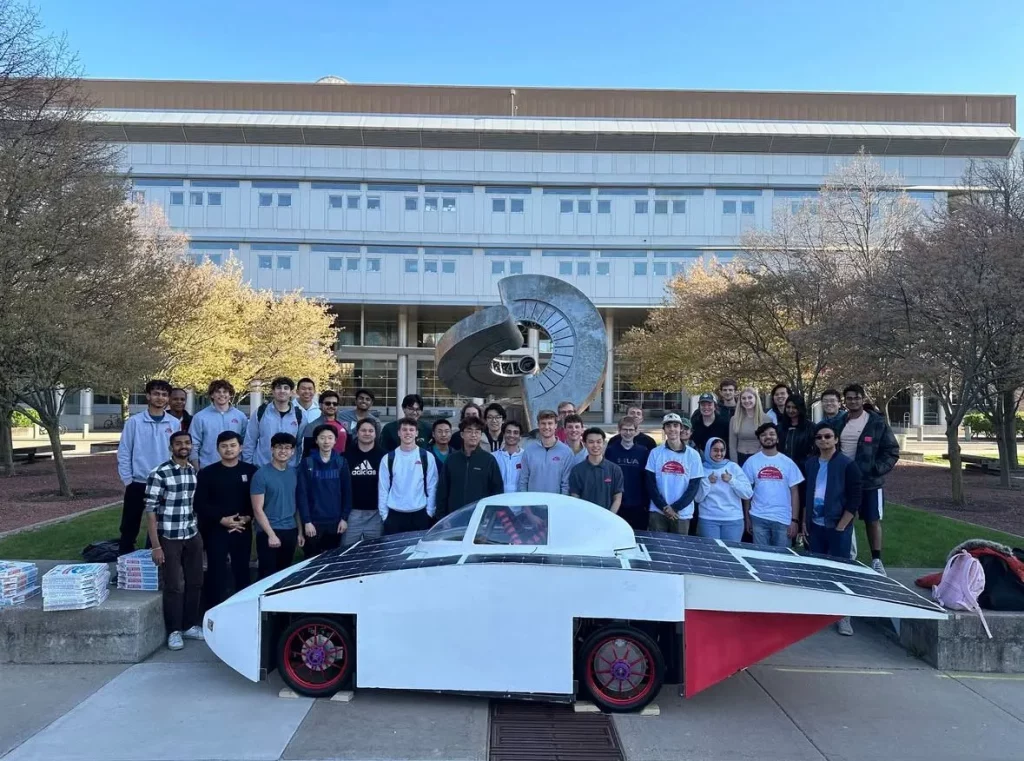
Solar car
Loves Building — From Solar Cars to AI Startups
Whether it’s building a race car from scratch or founding a tech startup, Aman thrives when he’s building something from the ground up. “I’ve always loved making things — whether it’s a product or a company,” he says.
One of his most defining experiences was leading the build of a fully solar-powered car that raced across Michigan during his third year at university. “We weren’t experts—we were undergrads with a vision. Our goal was ambitious: design and build a solar vehicle capable of competing in the Formula Sun Grand Prix and the American Solar Challenge.”
To make it happen, Aman and his team had to learn everything from scratch — solar array design, power electronics, aerodynamics, composites, and more. “Every challenge was new, and every solution came from late nights, teamwork, and relentless persistence,” he says.
The experience gave him more than just technical knowledge — it sparked a deeper belief in building with purpose. “That moment proved what’s possible when you’re willing to start from scratch, believe in your team, and chase something bigger than yourself.”
It’s the same spirit he carries into his latest venture — building what he calls the first corporate brain.


Aman Sanghi
The Corporate Brain
“It’s a system that learns from a company’s conversations, documents, and decisions to create a live memory that helps automate repetitive tasks and makes teams radically more efficient,” says Aman.
Designed to scale with teams and reduce cognitive overload, the product is deeply rooted in Aman’s own experiences with complex projects like the solar car. “There’s a surprising overlap — both require systems thinking, an understanding of how moving parts interact, and a willingness to solve hard problems.”
Completely focused on turning this into a full-fledged company, Aman shares that his AI venture has already gained attention from top VCs in the US. “We’ve received recognition from the Alchemist Accelerator and are actively working toward getting backed by a top-tier accelerator. The goal? To build the next unicorn.”
From Classrooms to Maker Labs
While his coursework in Electrical Engineering at UW–Madison gave him a solid foundation, Aman says his real growth came outside the classroom. “I found my stride in the maker and startup ecosystem around campus. That’s where I came alive.”


He regularly attended seminars and events hosted by the Wisconsin and Chicago Tech Councils, where he connected with seasoned entrepreneurs and technologists. One such meeting led him to Balamurugan Balakreshnan, Chief AI Officer at Microsoft. “He gave me invaluable feedback on my ideas — and stayed in touch. His mentorship has been a huge asset,” Aman notes.
The UW–Madison Experience
For Aman, choosing UW–Madison turned out to be a turning point. “I chose it for its strong engineering program and the overall college experience. It’s the best,” he says, adding that he had also considered Northeastern, RIT, and Rensselaer before finalizing UW–Madison.
Founded in 1848, UW–Madison has long been a catalyst for big ideas. With alumni that include Nobel laureates, Pulitzer Prize winners, and global innovators, the campus provided the perfect launchpad for Aman’s ambitions.
Adapted Fast, Dreamed Bigger
Recalling his first week on campus, Aman says, “I met so many Indian students, and quickly made friends from all over the world. The energy was incredible.”
Settling into the U.S. was surprisingly smooth. “I adapted quickly to the culture, the food, and the rhythm of life here.”
His weekends? Mostly spent on product development and brainstorming business ideas. “But once in a while, I go out fishing — it helps clear my head,” he smiles.
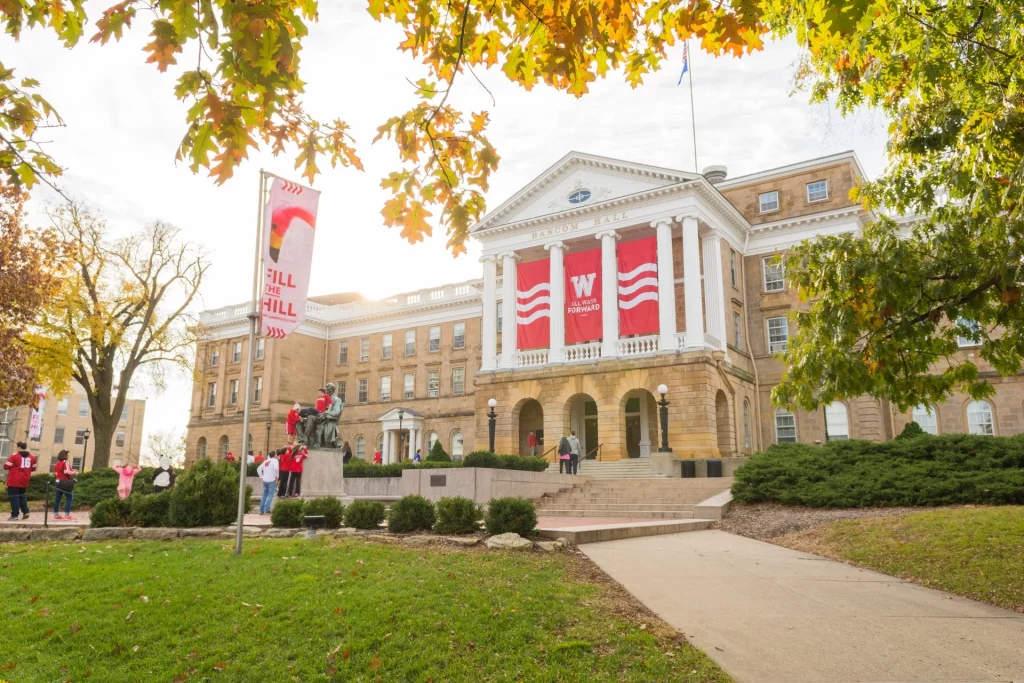

University of Wisconsin – Madison
A Global Mindset Rooted in Home
Aman’s entrepreneurial spirit was nurtured early on by his family. His mother Reeta always encouraged him to study abroad. “She believed exposure to a global environment is life-changing — and she was right,” he says. His father, Amit Sanghi, is an industrialist who runs the Sanghi Group.
Born in Hyderabad, Aman studied at Oakridge International School but wasn’t always a star student. “Honestly, I was pretty lost — until a teacher, Rajesh Sir, introduced me to engineering in a way that just clicked.”
That shift in perspective helped him not just academically — he also found his passion. Outside the classroom, he excelled in skeet shooting and even won the South Zone India gold medal in high school.
What’s Next?
“I want to build things that matter, and take them global — whether it’s an AI company, a product, or an idea,” says Aman. “I want to solve problems at scale, and enjoy the process while I do it.”
From the dusty garages where a solar dream came alive to the cloud-based world of AI decision-making, Aman Sanghi is building for a smarter, more sustainable future — one prototype at a time.
- Follow Aman Sanghi on LinkedIn
ALSO READ | Arya Gurumukhi: Texas teen bringing clean energy innovation to underserved communities

